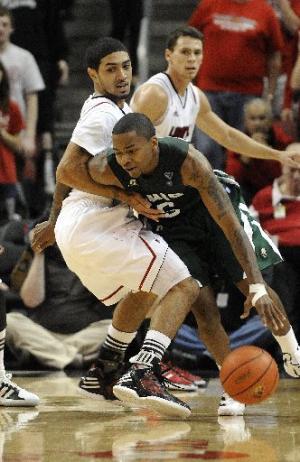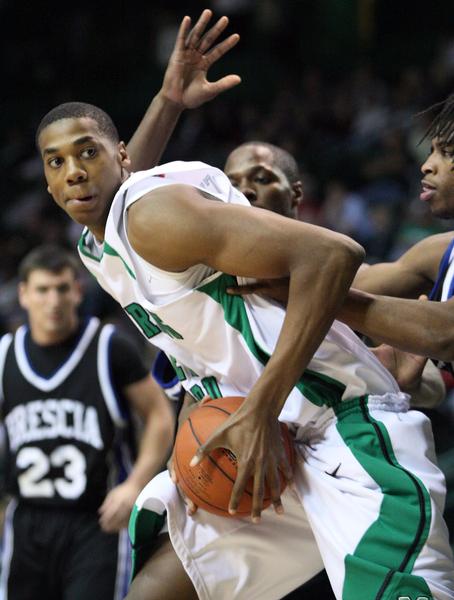The RTC Interview Series: One On One With Clark Kellogg
Posted by KDoyle on November 20th, 2012Rush The Court is back with another edition of One on One: An Interview Series, which we will bring you periodically throughout the year. If you have any specific interview requests or want us to interview you, shoot us an email at rushthecourt@yahoo.com.
This time our interview subject is Clark Kellogg. Most of you probably just know Clark from his work at CBS first as a studio analyst, but eventually as their lead college basketball analyst during March Madness. While that is impressive by itself, just saying that would be selling Clark’s on-court accomplishments short. Clark was a McDonald’s All-American, All-Big Ten, and was the #8 overall pick in the 1982 NBA Draft. In his rookie year, he averaged a ridiculous 20.1 points and 10.6 rebounds per game while being named All-Rookie First Team, but his career was cut short due to knee injuries. Clark joined us to talk about the new season of college basketball and his association with the Capital One Cup.

Once known for his skills on the court, Kellogg has now become one of the more recognizable faces in the sports broadcast industry (OhioDominican)
Kevin Doyle: How long have you been with the Capital One Cup and, in your opinion, what does the Cup stand for?
Clark Kellogg: This is year three for the Capital One Cup and my involvement as an advisory board member. To me, when you look at what the Capital One Cup represents—recognizing the top Division I athletic program on the men’s and women’s side over 39 total sports for cumulative on-field performance—the recognition not only comes in the reward of a Capital One Cup trophy, but also in $400,000 in total scholarship money for student-athletes. This combines the best of both worlds. Recognition for on-field and on-court performance, as well as supporting academic pursuits and achievement; I don’t know if you can get any better than that. The way the sports are recognized and the point system is tallied, there is a premium for winning national championships, but a school gains points for finishing in the top 10 in the end of season polls for the respective sports. So, there is yearlong involvement and opportunity to earn those points from the fall sports season through the spring sports season. When you are able to combine recognizing excellence for on-field and on-court performance with supporting and fueling academic pursuits and scholarship, that speaks volumes.
KD: The Capital One Cup is so unique because it doesn’t place a premium on one sport versus another. We see in the national media football and basketball primarily takes precedence, but the Cup doesn’t favor any sports. How much does a school’s success in the Capital One Cup standings speak to the strength of their programs across the board?
CK: The points you just made are good ones because all sports are involved, and men’s and women’s sports are of complete equal value to each other. The fact that you separate and have recognition for a winner on the men’s side in Division I athletics over multiple sports, and one on the women’s side is fantastic because all of those student-athletes get a chance to contribute to their program and school. This is what makes it so unique and comprehensive in its approach. I love the fact that student-athletes who sometimes don’t get the same recognition that high-profile and revenue-generating sports do have a chance to feel like they’re contributing to something that’s bigger than themselves.















































